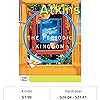Adrian
asked
Rose Rosetree:
Hi Rose, In regards to your Empath Book series... What is the difference between your books about Empath Empowerment, and the books that Judith Orloff and Judy Dyer write? I think your books are self-published - correct me if I'm wrong there. I have a lot of respect for self-publishers. Did you find you had more freedom to write what you wanted to write, as a self-publisher?
Rose Rosetree
Adrian, you've asked a whole series of questions here at my Goodreads Author page. I'm just delighted.
FIRST, A SIMPLE ANSWER
Regarding the part of this question about What is the difference between your books about Empath Empowerment, and the books that Judith Orloff and Judy Dyer write?
A very big difference is that I cocreated the system of Empath Empowerment®. Neither of these authors has the right to ever claim that they are teaching "Empath Empowerment." That's trademark infringement. Both Judith and Judy and their publishers ought to know better.
To be clear, what they teach came after I published the first book for empaths in English, in 2001. Afterward they have added their contributions which teach entirely different approaches.
All books for empaths aren't alike, no more than every vehicle on the road, are equally good for driving.
SECOND, REGARDING SELF-PUBLISHING
I'm so glad you asked about this, Adrian. Independent publishing (as it is called today, more commonly than "self-publishing") does allow more freedom. But what kind of freedom? I'd like to delve into that a bit with you and other Goodreaders.
Ever since I was in high school, I became fascinated with the novels of Virginia Woolf and also James Joyce. Both of them published in the century leading up to the Shift into the Age of Awakening. Both were leaders in writing from the vantage point of deepening perception.
At the time when they wrote, it was shocking that they wrote about stream of consciousness: Namely Woolf and Joyce explored bits of subconscious experience that could be found beneath the usual surface of life, conscious experience.
AND I DO MEAN SHOCKING
At the time, was the public ready for that leading-edge kind of subject matter?
"Ulysses," by James Joyce, was published by Sylvia Beach, the proprietor of the Paris bookstore Shakespeare and Company. Not self-published.
However, it was banned in different countries. For instance, in America, in 1920, the New York Society for the Suppression of Vice successfully argued to have the book labeled as obscene and effectively banned. That ban wasn't lifted until a 1933 court ruling.
So that's what James Joyce faced for breakthrough writing that was ahead of his time. IMO, that's one way he personally paid the price for his leadership.
BY CONTRAST, VIRGINIA WOOLF SELF-PUBLISHED
For decades, she and her husband, Leonard Woolf, In the decades that she and her husband, established the Hogarth Press - starting with a hand-operated printer they ran on their dining room table, cranking out one page at a time.
Thus Virginia Woolf could published what she wished. Relatively little censorship and banning afflicted her career. Yet who can tell the price that she, personally, paid for publishing leading-edge work? (Perhaps some of you know how her life ended, for instance.)
Is it ever easy to bring authentically new writing into the world, creating breakthroughs in Collective Consciousness? I don't think so.
BACK TO YOUR ORIGINAL QUESTION HERE, ADRIAN
In no way am I likening myself to these two literary greats, Virginia Woolf and James Joyce. Yet both of them produced work that went against, or around, or beyond, what was popular then in the mainstream.
In my very different career, I have served as a bit of an innovator myself, such as bringing forward the method of Empath Empowerment, a method that hasn't been copied... even if other empath authors have taken the name of the system I teach through "Empath Empowerment in 30 Days" and the other books.
HOW RESPECTFULLY HAS MY WORK BEEN TREATED BY MAINSTREAM PUBLISHERS?
Not very. I have a couple of examples, if any of you Goodreaders wishes to ask about them.
Bottom line, although publishing by traditional houses was once my dream, that is no longer my dream. I'm grateful for those readers who find my indie books, and appreciate them. And, like any indie publisher, every rating and review from you readers does make a very significant difference for helping us to reach our readers.
Indie authors are underdogs, basically. At least, we get to be our own kind of dogs. ;)
FIRST, A SIMPLE ANSWER
Regarding the part of this question about What is the difference between your books about Empath Empowerment, and the books that Judith Orloff and Judy Dyer write?
A very big difference is that I cocreated the system of Empath Empowerment®. Neither of these authors has the right to ever claim that they are teaching "Empath Empowerment." That's trademark infringement. Both Judith and Judy and their publishers ought to know better.
To be clear, what they teach came after I published the first book for empaths in English, in 2001. Afterward they have added their contributions which teach entirely different approaches.
All books for empaths aren't alike, no more than every vehicle on the road, are equally good for driving.
SECOND, REGARDING SELF-PUBLISHING
I'm so glad you asked about this, Adrian. Independent publishing (as it is called today, more commonly than "self-publishing") does allow more freedom. But what kind of freedom? I'd like to delve into that a bit with you and other Goodreaders.
Ever since I was in high school, I became fascinated with the novels of Virginia Woolf and also James Joyce. Both of them published in the century leading up to the Shift into the Age of Awakening. Both were leaders in writing from the vantage point of deepening perception.
At the time when they wrote, it was shocking that they wrote about stream of consciousness: Namely Woolf and Joyce explored bits of subconscious experience that could be found beneath the usual surface of life, conscious experience.
AND I DO MEAN SHOCKING
At the time, was the public ready for that leading-edge kind of subject matter?
"Ulysses," by James Joyce, was published by Sylvia Beach, the proprietor of the Paris bookstore Shakespeare and Company. Not self-published.
However, it was banned in different countries. For instance, in America, in 1920, the New York Society for the Suppression of Vice successfully argued to have the book labeled as obscene and effectively banned. That ban wasn't lifted until a 1933 court ruling.
So that's what James Joyce faced for breakthrough writing that was ahead of his time. IMO, that's one way he personally paid the price for his leadership.
BY CONTRAST, VIRGINIA WOOLF SELF-PUBLISHED
For decades, she and her husband, Leonard Woolf, In the decades that she and her husband, established the Hogarth Press - starting with a hand-operated printer they ran on their dining room table, cranking out one page at a time.
Thus Virginia Woolf could published what she wished. Relatively little censorship and banning afflicted her career. Yet who can tell the price that she, personally, paid for publishing leading-edge work? (Perhaps some of you know how her life ended, for instance.)
Is it ever easy to bring authentically new writing into the world, creating breakthroughs in Collective Consciousness? I don't think so.
BACK TO YOUR ORIGINAL QUESTION HERE, ADRIAN
In no way am I likening myself to these two literary greats, Virginia Woolf and James Joyce. Yet both of them produced work that went against, or around, or beyond, what was popular then in the mainstream.
In my very different career, I have served as a bit of an innovator myself, such as bringing forward the method of Empath Empowerment, a method that hasn't been copied... even if other empath authors have taken the name of the system I teach through "Empath Empowerment in 30 Days" and the other books.
HOW RESPECTFULLY HAS MY WORK BEEN TREATED BY MAINSTREAM PUBLISHERS?
Not very. I have a couple of examples, if any of you Goodreaders wishes to ask about them.
Bottom line, although publishing by traditional houses was once my dream, that is no longer my dream. I'm grateful for those readers who find my indie books, and appreciate them. And, like any indie publisher, every rating and review from you readers does make a very significant difference for helping us to reach our readers.
Indie authors are underdogs, basically. At least, we get to be our own kind of dogs. ;)
More Answered Questions
Horatio
asked
Rose Rosetree:
Hi Rose, I hear that on August 1, you are going to publish a second edition of “Bigger than All the Night Sky.” So many memoirs are by famous people, like “Thicker than Water” by Kerry Washington and “Enough” by Cassidy Hutchinson. Rose, you know that you’re not famous like that. I don’t mean to insult you but, speaking realistically, why would anybody want to read your memoir?
About Goodreads Q&A
Ask and answer questions about books!
You can pose questions to the Goodreads community with Reader Q&A, or ask your favorite author a question with Ask the Author.
See Featured Authors Answering Questions
Learn more





